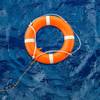Protection and indemnity (P&I), and hull insurer, The Swedish Club reported that a study it conducted showed direct evidence that ships complying with the International Safety Management code (ISM) have made significant fewer claims than non-ISM vessels.
The primary objective of the ISM code is to minimize human error by development and implementation of procedures.
The analysis, which examined hull and P&I claims over a four-year period ending June 30, 1999, revealed that claims levels have fallen by about 30 percent in both categories for vessel types required to achieve "Phase 1" certification by July 1, 1998, in relation to "Phase 2" vessels subject to a July 1, 2002 deadline.
The Club said the major relative fall in claims occurred in the final two years of the study period. It stressed that it has taken great care to ensure that the analysis took full account of key variables. The level of deductibles - excess limits -followed a similar pattern in the two vessel groups, the Club added.
Martin Hernqvist, the Club's loss prevention officer said, "The Club is a firm believer in ISM, and we would not be surprised if this positive development is closely related to the successful introduction of ISM in our members' organizations."
"This is also backed up by the preliminary findings of a Club survey on ISM, where many members see a positive change in the incident rate since implementation, and mention ISM as a possible explanation" he added.
The Club expects that the gap between claims trends for the two vessel groups will narrow as 2002 approaches.
Hernqvist said at a briefing the Club offers members a two percent premium reduction for early ISM compliance. He expected the results of its ISM survey to be completed in a couple of months.
The Club's claims study involved 592 hull and 426 P&I vessels, together with 1,218 hull and 1,035 P&I claims.
In "Phase 1", oil tankers, product tankers, chemical tankers and bulk carries were reviewed, while "Phase 2" types comprised container vessels, general cargo vessels, refrigeration vessels (reefers) and roll-on roll-off cargo ships, the Club said.
Around 20 percent of the Club's total hull tonnage, and about 40 to 50 percent of that in P&I is operated under the Swedish flag.
P&I clubs are mutuals, set up to cover shipowners' liabilities not covered under hull policies.
Subscribe for
Maritime Reporter E-News
Maritime Reporter E-News is the maritime industry's largest circulation and most authoritative ENews Service, delivered to your Email five times per week










